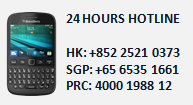Israel

Arab Boycott Of Israel - Maritime Implications
The Central Office of the Arab Boycott of Israel in Damascus (the Central Boycott Office) was established by the Arab League in 1951 (although the origins of the Boycott date back to 1945). Whilst the structure of the Boycott remains unchanged, its enforcement varies widely from country to country within the Arab League (each participating Arab League State maintaining its own national Boycott office). At one time the campaign of the Boycott was diminishing but it has intensified again in recent years.
The Boycott regulations have been applied in every Arab country, save for those who have signed a peace treaty/accord with Israel, namely Egypt, Jordan and Mauritania.
The Boycott operates at three levels:
- The primary boycott prohibits direct trade between Israel and the Arab nations (this is aimed at prohibiting the dealing in products or services which originate from Israel).
- The secondary boycott is directed at companies that do business with Israel. Such firms are, in effect, "blacklisted".
- The tertiary boycott involves the blacklisting of firms that trade with other companies that do business with Israel or have business ties with blacklisted companies.
Members Of The Arab League
The following is a list of the 22 countries forming part of the Arab League:
Algeria Bahrain Comoros Djibouti Egypt (Officially removed the boycott) Iraq (Primary, Secondary and Tertiary) Jordan (Officially removed the boycott) Kuwait Lebanon (Primary, Secondary and Tertiary) Libya (Primary, Secondary and Tertiary) Mauritania (Officially removed the boycott) Morocco Oman Palestinian Authority Qatar Saudi Arabia Somalia Sudan Syria (Primary, Secondary and Tertiary) Tunisia United Arab Emirates Yemen
Ships which have called at Israeli Ports
In the maritime context, ships calling at an Israeli port will have their names placed on the blacklist maintained at the Central Boycott Office. The vessel name will be published in the Official Gazette together with her IMO number, details and ownership. These details are also circulated to the national Boycott offices of other States in the Arab League.
Blacklisting is based on a vessel's IMO number. Accordingly, changes in name or ownership will not affect blacklisting. The consequences of blacklisting include:
- Loading or discharging cargo may be prohibited.
- Detention
- Fines
- Impact on sale of a vessel due to warranty that the vessel is not the subject of blacklisting
- Removal from the blacklist is a complicated and time consuming process.
- A vessel which has been removed from the blacklist but is subsequently discovered to have called again at an Israeli port will blacklisted permanently.
Nowadays most of the above countries, other than those indicated, apply only the primary level of boycott which is aimed at prohibiting the importation of and dealing with products and services which originate from Israel. However, it has been noted that even some of the above countries, which only apply a primary level of boycott, such as Sudan, are becoming somewhat stricter in their enforcement of the Boycott.
Varied Response of the Boycott States
For purposes of ships calling at Arab ports, the countries that apply and enforce the Boycott very strictly are those listed above as applying the three levels of boycott, namely Iraq, Lebanon, Libya and Syria. However, even in these countries, treatment of a breach of the Boycott as a result of a vessel calling at an Israeli port varies. For example, in Syria, if a vessel is already on the blacklist and calls at a Syrian port, she will not be permitted to operate at all. However, if during that call it is discovered that she had traded to Israel she will be permitted to discharge (but not to load) during that first call but will be advised that she will be placed on the blacklist and will be refused operation completely if she calls again at a Syrian port in future.
Failure to Produce Log Book
Also in Syria the failure to have on board the vessel's log book covering six months prior to the vessel's call at Syria will mean that the Owners will be given notice either to produce a copy of the log book within six months or become blacklisted. This exercise is designed to "flush out" vessels which have called at Israel but are attempting to hide that fact by removing the log books prior to calling at Syria. This can cause difficulties where an owner has bought the vessel recently and the log books have been retained by previous owners/Sellers. If the current owners are unable to obtain a copy of the log book, they cannot make an application to "de-blacklist" a vessel. They will have to await for the six months to elapse, for the vessel to become blacklisted and only thereafter to carry out the de-blacklisting procedure.
Detention and Fines
By way of contrast, in Lebanon if it is discovered that the vessel has called at an Israeli port, or if she is already on the backlist, the vessel will be detained and a customs fine will be payable. The release of the vessel will be time-consuming since a Power of Attorney and an Undertaking will have to be obtained from the Owners which must be notarised and legalised in the country of registration of the owners or of their principal place of business. Those documents must be sent to Lebanon and submitted through the local Beirut boycott office following which they will have to be sent to Damascus for de-blacklisting at the Central Boycott Office and then returned to Lebanon. The final approval will have to be given by the Lebanese Council of Ministers who usually only meet once a week. The vessel will remain under detention until it has been this process has been completed.
De-Blacklisting Procedure
Once a vessel is blacklisted, there is a special procedure for de-blacklisting her at the Central Boycott Office in Damascus. The process is usually time-consuming due to the documentation required to be submitted as follows:
- A copy of the vessel's Certificate of Registration, duly certified as being a true copy by its issuing authority and notarised by a Notary Public, and then legalised by the Syrian Embassy.
- Original Undertaking from the vessel's registered owner to be issued on its letterhead, duly notarised and legalised by the Syrian Embassy at the place of incorporation of the owner or at its principal place of business. The Undertaking basically provides that the owner undertakes never to permit the vessel to call again at an Israeli port or to charter the vessel to or deal with Israeli interests.
- Power of Attorney from the registered owner in favour of the person who has instructions to de-blacklist the vessel in Syria which must be signed, sealed/stamped by the same persons who signed the above-mentioned Undertaking. The Power of Attorney must also be issued on the owner's letterhead and be duly notarised and legalised by the Syrian Embassy at the place of incorporation of the owner or at its principal place of business.
If the documents cannot be legalised due to the fact that the owning company is registered in countries where no Syrian Embassy is available (such as Liberia, The Marshall Islands etc.), if the principal place of business of the owning company is situated in a different country to the place of incorporation, then other procedures should be followed and further documents are required to be issued. The reason being that if the documents are being legalised in a country other than the country of incorporation of the owning company, then official proof of the presence of the principal place of business in that former country must also be produced.
Furthermore, according to the Central Boycott Office regulations, legalisation may not be done by an honorary Syrian Consul appointed in a certain country but only by a Syrian Embassy or the Embassy of any other Arab League State (provided also it is not an honorary appointed Consul).
All the required documents will have to be translated into Arabic and the de-blacklisting formalities can commence with the Central Boycott Office. Once this is complete, the Central Boycott Office will issue a Certificate to this effect and the de-blacklisting will be recognised in all Arab League States.
Permanent Blacklisting
If a vessel which has been the subject of de-blacklisting contravenes the Boycott regulations again by calling at an Israeli port, then she will be blacklisted permanently and may not be de-blacklisted again.
Cover Issues
From the cover perspective, shipowners are reminded that cover is not available as of right for fines which may arise as a consequence of falling foul of the Arab blacklist but only at the discretion of the Directors if they are satisfied that the shipowners took such steps as appear to the Directors to be reasonable to avoid the event giving rise to the fine.





